AI-Assisted Fitness and Wellness: The Future of Personal Health
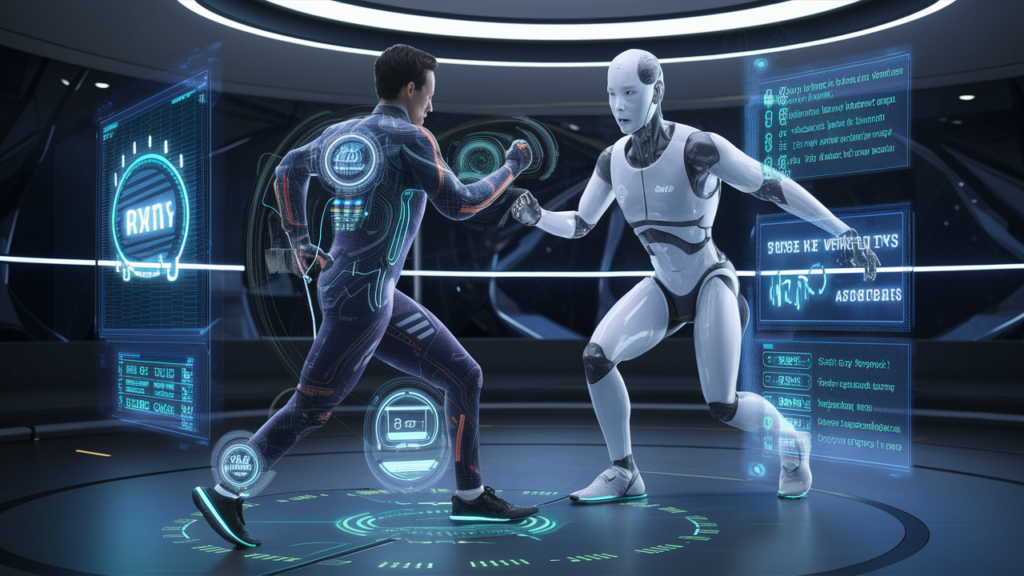
Key Takeaways
- AI is revolutionizing fitness and wellness through personalized workout plans, smart nutrition guidance, and adaptive training programs.
- Mental wellness is enhanced by AI-powered mood tracking, personalized meditation, and cognitive behavioral therapy support.
- Wearable technology integrated with AI provides predictive health alerts and continuous monitoring of various health metrics.
- Virtual AI trainers offer 24/7 availability, natural language interaction, and emotionally intelligent coaching.
- The future of AI in fitness includes augmented reality workouts, predictive health modeling, and integration with smart home devices.
- While AI offers numerous benefits, it’s important to consider data privacy, avoid over-reliance on technology, and maintain a balance with human expertise.
- AI-assisted fitness is suitable for all levels, from beginners to advanced, and can be adapted for various health conditions and preferences.
In recent years, artificial intelligence (AI) has made significant strides in various industries, and the fitness and wellness sector is no exception. As we become more health-conscious and technology-driven, AI is revolutionizing how we approach our personal health and fitness goals. Let’s explore in depth how AI is shaping the future of fitness and wellness.
AI-Assisted Fitness and Wellness: The Future of Personal Health audio file
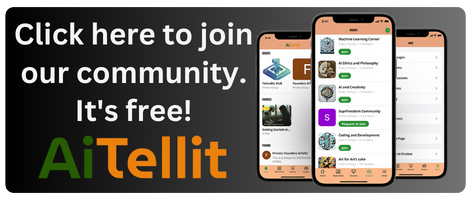
Personalized Workout Plans
One of the most significant advantages of AI in fitness is its ability to create highly personalized workout plans. By analyzing data such as your fitness level, goals, preferences, and even genetic information, AI algorithms can design tailored exercise routines that are far more effective than one-size-fits-all programs.
- Adaptive Training: AI-powered fitness apps can adjust your workout plan in real-time based on your progress, fatigue levels, and recovery needs. For example, if you’ve had a poor night’s sleep or a particularly stressful day, the AI might suggest a less intense workout or focus on recovery exercises.
- Form Correction: Computer vision technology can analyze your exercise form and provide instant feedback, helping you prevent injuries and maximize results. This technology can be integrated into smart mirrors or smartphone apps, offering a virtual personal trainer experience.
- Performance Prediction: By analyzing your workout history and physiological data, AI can predict your performance potential and set realistic, achievable goals.
- Injury Prevention: AI algorithms can identify patterns in your movement that might lead to injury and suggest corrective exercises or modifications to your routine.
- Integration with Biometric Data: Advanced AI systems can integrate data from wearables, such as heart rate variability and sleep quality, to optimize workout timing and intensity.
Smart Nutrition Guidance

AI is not just about exercise; it’s also transforming how we approach nutrition:
- Personalized Meal Plans: AI can create meal plans that cater to your dietary requirements, preferences, and fitness goals. These plans can adapt based on your daily activity levels, upcoming events, or even your menstrual cycle for women.
- Intelligent Food Tracking: Advanced image recognition can identify foods and automatically log nutritional information, making calorie tracking effortless. Some apps can even estimate portion sizes from photos.
- Nutrient Optimization: AI can analyze your eating habits and suggest ways to address nutritional deficiencies or optimize your macronutrient balance.
- Recipe Suggestions: Based on your dietary preferences and available ingredients, AI can suggest recipes that align with your nutritional goals.
- Restaurant Menu Analysis: When eating out, AI can scan restaurant menus and recommend dishes that fit your dietary plan.
- Shopping List Generation: AI can create shopping lists based on your meal plans, considering factors like seasonality and local availability of ingredients.
Mental Wellness Support
Wellness extends beyond physical health, and AI is making significant contributions to mental health:
- Mood Tracking: AI-powered apps can analyze your voice, text messages, and social media activity to detect signs of stress or depression. Some advanced systems can even analyze facial expressions through your device’s camera.
- Meditation and Mindfulness: AI assistants can guide personalized meditation sessions and provide mindfulness exercises tailored to your emotional state. These can adapt based on time of day, stress levels, and personal preferences.
- Cognitive Behavioral Therapy (CBT) Support: AI chatbots can provide CBT-based interventions, helping users challenge negative thought patterns and develop coping strategies.
- Sleep Improvement: AI can analyze your sleep patterns and environmental factors to suggest changes for better sleep quality, such as adjusting room temperature or recommending relaxation techniques.
- Social Connection Prompts: For users struggling with isolation, AI can suggest appropriate times and ways to connect with friends or join community activities.

Wearable Technology and Health Monitoring
AI-enhanced wearables are becoming increasingly sophisticated:
- Predictive Health Alerts: By analyzing trends in your vital signs, AI can predict and alert you to potential health issues before they become serious. This could include early warnings for conditions like atrial fibrillation or diabetes.
- Sleep Optimization: AI algorithms can analyze your sleep patterns and provide recommendations for improving sleep quality. This might include suggestions for bedtime routines, optimal room conditions, or even when to stop consuming caffeine.
- Continuous Glucose Monitoring: For diabetics and health enthusiasts alike, AI can interpret continuous glucose monitor data to provide insights on how different foods and activities affect blood sugar levels.
- Stress Management: By analyzing heart rate variability and other biometric data, AI can identify periods of high stress and suggest real-time interventions like breathing exercises or short breaks.
- Personalized Hydration Recommendations: Based on factors like activity level, climate, and sweat rate, AI can provide customized hydration recommendations throughout the day.
Virtual Personal Trainers and Coaches
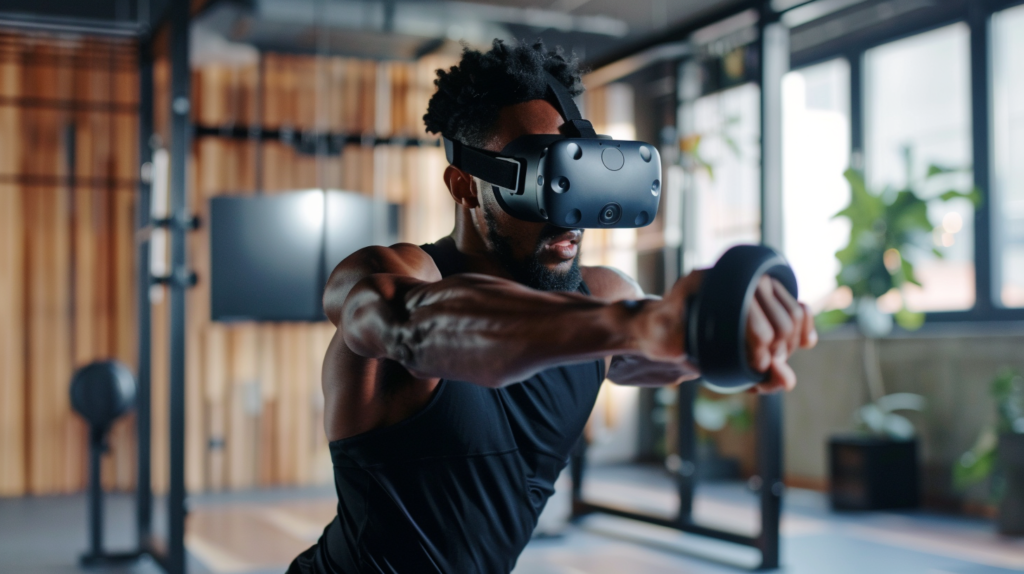
AI-powered virtual trainers and coaches are becoming more advanced:
- 24/7 Availability: Get guidance and motivation anytime, anywhere. These AI coaches can provide instant answers to fitness and nutrition questions, offer workout demonstrations, and even provide pep talks when motivation is low.
- Natural Language Processing: Interact with your virtual coach using voice commands for a more natural experience. Advanced systems can understand context and tone, adjusting their responses accordingly.
- Progress Tracking and Visualization: AI coaches can provide detailed progress reports, using data visualization to help users understand their fitness journey more clearly.
- Gamification: AI can introduce game-like elements to fitness routines, setting challenges and rewards based on individual preferences and goals to keep users engaged.
- Emotional Intelligence: More sophisticated AI coaches are being developed with emotional intelligence capabilities, allowing them to provide empathetic responses and motivational strategies tailored to each user’s personality.
Challenges and Considerations
While AI in fitness and wellness offers numerous benefits, it’s important to consider:
- Data Privacy: Ensure that platforms using your health data have robust security measures. Look for apps that offer end-to-end encryption and comply with health data regulations like HIPAA.
- Over-reliance on Technology: Remember that AI should complement, not replace, professional medical advice. Regular check-ups with healthcare providers are still crucial.
- Digital Detox: Balance technology use with unplugged activities for overall well-being. Consider setting boundaries for when and how you use AI-assisted fitness tools.
- Accuracy and Reliability: Not all AI-powered fitness solutions are created equal. Look for apps and devices that are backed by scientific research and have good user reviews.
- Accessibility: While AI can make personalized fitness more accessible, it’s important to consider that not everyone has access to the necessary technology. This digital divide could exacerbate health inequalities if not addressed.
The Future of AI in Fitness and Wellness
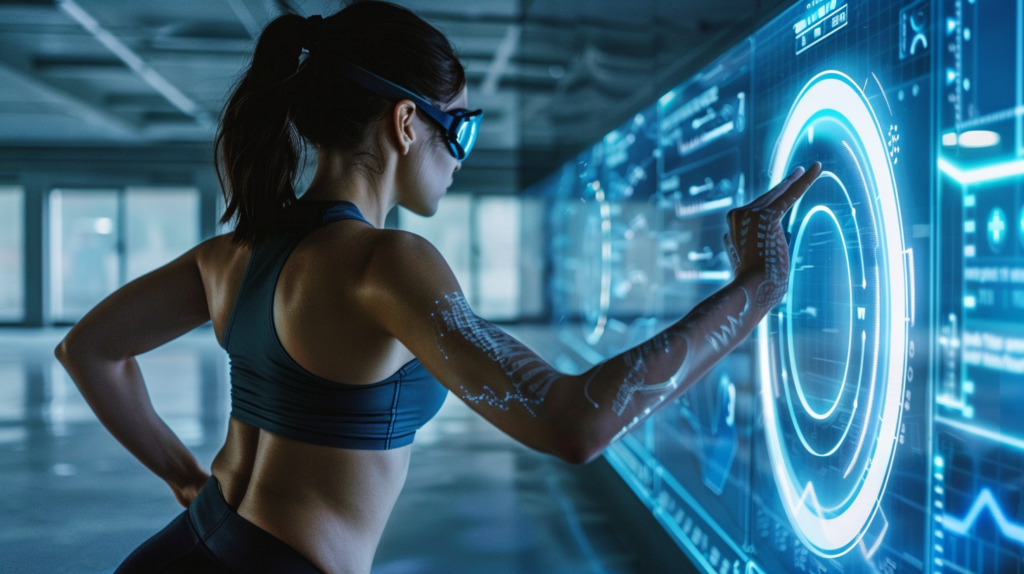
As AI continues to evolve, we can expect even more innovative applications in fitness and wellness:
- Augmented Reality Workouts: Immersive exercise experiences that blend the virtual and physical worlds. This could include AI-powered virtual training partners or entire virtual fitness environments.
- Predictive Health Modeling: AI that can forecast long-term health outcomes based on current habits and genetic predispositions. This could help in early intervention and personalized preventive care.
- Integration with Smart Home Devices: AI fitness systems could integrate with smart home technology to create optimal environments for workouts or recovery, adjusting lighting, temperature, and even air quality.
- Personalized Supplement Recommendations: Based on your genetic profile, diet, and fitness goals, AI could recommend and even formulate personalized nutritional supplements.
- AI-Designed Fitness Equipment: Future exercise machines could use AI to automatically adjust resistance, speed, and other factors based on your performance and goals.
- Brain-Computer Interfaces: While still in early stages, BCIs could potentially allow for direct neural feedback during workouts, providing a new level of mind-body connection in fitness.
In conclusion, AI is set to play an increasingly important role in our fitness and wellness journeys. By embracing these technological advancements responsibly, we can look forward to a future where personalized, effective, and engaging health solutions are accessible to everyone. As AI continues to evolve, it will be crucial to balance the benefits of technology with the importance of human connection and holistic well-being. The future of fitness and wellness is not just about being physically fit, but about achieving a harmonious balance of physical, mental, and emotional health, all supported by the power of artificial intelligence.

Frequently Asked Questions (FAQ) about AI-Assisted Fitness and Wellness
To help address common concerns and queries about AI in fitness and wellness, here are some frequently asked questions:
1. Is AI-assisted fitness suitable for beginners?
Yes, AI-assisted fitness can be excellent for beginners. Many AI fitness apps and platforms are designed to adapt to all fitness levels, including complete beginners. They can provide guidance on proper form, suggest appropriate starting workouts, and gradually increase intensity as you progress.
2. How accurate are AI-powered nutrition trackers?
The accuracy of AI-powered nutrition trackers has improved significantly in recent years. While they may not be 100% accurate, especially with homemade meals or uncommon foods, they generally provide a good estimate. For best results, combine AI tracking with some manual input and occasional checks with a nutritionist.
3. Can AI really replace human personal trainers?
While AI can provide personalized workout plans and real-time feedback, it’s not meant to entirely replace human trainers. AI is an excellent tool for day-to-day guidance and motivation, but human trainers offer unique benefits like emotional support, hands-on form correction, and the ability to handle complex or unusual situations.
4. Are AI wellness apps secure? How is my data protected?
Reputable AI wellness apps prioritize data security and often use encryption to protect your information. However, it’s important to read the privacy policy of any app you use and ensure it complies with relevant data protection regulations. Look for apps that allow you to control your data sharing preferences.
5. How often should I update my AI fitness plan?
Most AI fitness plans automatically adjust based on your progress and feedback. However, it’s a good idea to reassess your goals every 8-12 weeks or whenever there’s a significant change in your life circumstances, such as injury, pregnancy, or a major schedule change.
6. Can AI-assisted workouts be done at home without equipment?
Absolutely! Many AI fitness apps offer bodyweight exercises and equipment-free workouts. They can design routines based on the space and resources you have available, making home workouts accessible and effective.
7. How does AI account for health conditions or injuries in fitness planning?
Advanced AI fitness platforms allow you to input information about health conditions or injuries. The AI then adjusts your workout plans to avoid exacerbating these issues and may suggest alternative exercises. However, it’s crucial to consult with a healthcare professional for personalized medical advice.
8. Are AI-generated meal plans balanced and healthy?
AI-generated meal plans are designed to be balanced and healthy based on current nutritional guidelines and your personal needs. However, if you have specific health concerns or dietary restrictions, it’s wise to review these plans with a registered dietitian.
9. How can I ensure I’m not becoming too dependent on AI for my wellness routine?
While AI can be a powerful tool, it’s important to develop your own body awareness and decision-making skills. Try occasionally planning your own workouts or meals, and always listen to your body. Use AI as a guide, not a replacement for your own judgment.
10. What’s the future of AI in fitness and wellness? What developments can we expect?
The future of AI in fitness and wellness is exciting and rapidly evolving. We can expect more integration with virtual and augmented reality, advanced biometric tracking (including continuous monitoring of various health markers), and even more personalized recommendations based on genetic data. AI might also play a bigger role in preventive healthcare, predicting and helping to prevent potential health issues before they arise.
Remember, while AI can provide valuable assistance in your fitness and wellness journey, it’s always important to listen to your body and consult with healthcare professionals for personalized advice, especially when dealing with specific health concerns or starting a new fitness regimen.





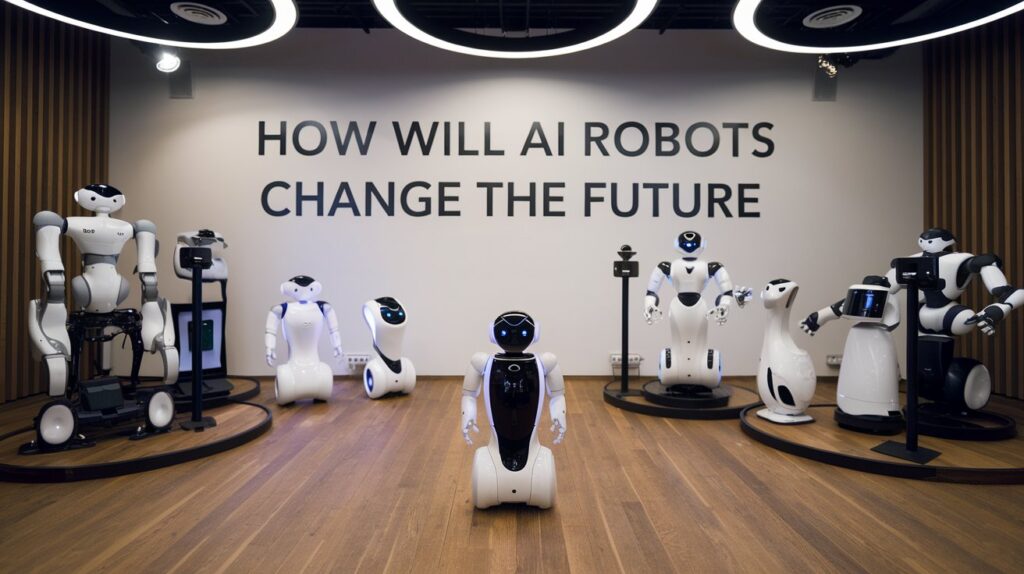


Responses